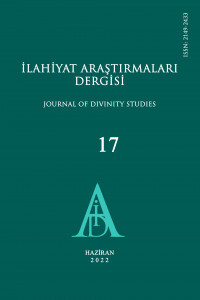21. Asırda Bosna Hersek’te İslamî Gündem
Bosna Hersek Devleti ve Boşnak Müslümanlar Osmanlı’nın çekilişinden sonra çok zor süreçlerden geçmiş, Avusturya Macaristan İmparatorluğu, Sırp, Hırvat ve Sloven Krallığı (SHS), Yugoslavya Krallığı, Bağımsız Hırvatistan Devleti (NDH) ve Yugoslavya Sosyalist Federal Cumhuriyeti gibi rejimleri sürecinde hep baskı, sürgün ve zülüm görmüş ve her türlü hak ve hürriyetlerden mahrum edilmişlerdir. Boşnak alimler, ilahiyatçılar, imam-hatip hocaları ve imam-hatipler İslam dinini korumak adına bütün baskı ve zulümlere rağmen kararlı bir şekilde davasını devam ettirmişlerdir. Osmanlı’dan sonraki zamanda yaşadıkları her şeye rağmen, Boşnak Müslümanlar yok olmadıklarına göre, Yugoslavya Sosyalist Federal Cumhuriyetini son yıllarda (1975’ten sonra) az da olsa din haklarını tanımaya mecbur bırakmıştır. Yugoslavya Cumhurbaşkanı Josip Broz Tito Mısır, Hindistan ve İran ile iyi ilişkiler içerisinde olduğu için Boşnak Müslümanlar dini eğitimi daha çok Mısır’da görmeye başladılar. Buradan hareketle 1990’lı yıllara doğru yaklaşırken Bosna Hersek’te daha önce fiili olmayan yeni dini akım ve ideolojiler görülmeye başlandı. Bosna Hersek dini sahasında 1992-1995 savaşından sonra Şii, Vehhabî, Ahmediyye ve bazı tarikatlar gibi farklı dini akımlar faaliyete geçtiler. Osmanlı’nın Bosna Hersek’ten çekilişinden sonra Boşnak Müslümanların din hizmetlerini yürütmek üzere Boşnakların yegâne dini kurumu olan Bosna Hersek İslam Birliği 1995’ten itibaren, halka İslam’ı sözle ve yazı ile anlatmakla yetinmemiş, uygulamaya yönelik bağlayıcı fetvalar vermişler ve kararlar almışlardır. Bosna Hersek İslam Birliği dışında örgütlenen dini akım ve grupları kendi bünyesine davet ederek, ümmetin birliği ve beraberliği için en faydalı olacağı mütalaa olunmuştur.
Anahtar Kelimeler:
Bosna Hersek, Bosna Hersek İslam Birliği, Dini Akımlar, Vehabizm, Şiizm, Hanefî-Mâtürîdî Geleneği
Islamic Scenes in Bosnia and Herzegovina in the 21st Century
The state of Bosnia and Herzegovina, as well as the Bosniak Muslims, since the withdrawal of the Ottoman Empire, lived within very difficult social processes under the regimes of the Austro-Hungarian Empire, Serbian, Croatian and Slovenian kingdoms (SHS), the Kingdom of Yugoslavia, the Independent State of Croatia (NDH) and the Socialist Federal Republic of Yugoslavia which did not give them almost any kind of rights and freedoms, exposing them to the processes of imprisoning, abuse, oppression and genocide.Bosnian aloes, theologians, mudarris and imams resolutely continued their religious call despite all the repression and persecution. In spite of everything they experienced, Bosniak Muslims forced the Socialist Federal Republic of Yugoslavia in recent years (after 1975) to recognize, although partially, the religious rights of Bosniaks Muslims. In addition, Yugoslav President Josip Broz Tito had very good relations with Egypt, India and Iran, and hence the religious education of young Bosniak Muslims began to take place in Egypt. In this regard, while approaching the nineties, new religious movements and ideologies that were not present before, were de facto noticed on the Islamic scene in Bosnia and Herzegovina. After the war of 1992-1995, the Wahhabi, Shia, Ahmed, and certain Dervish ranks began to operate in the society.
However, much sooner, after the withdrawal of the Ottoman Empire from Bosnia and Herzegovina, the Bosniak Muslims founded the Islamic Community in Bosnia and Herzegovina, which has exclusive authority to take care of the needs of Muslims and to deal with Islamic religious issues. Therefore, the Islamic Community, faced with the new religious movements and ideologies, was not satisfied only with the spoken and written words in order to understand Islam better, but it also implemented very important fetches and decisions, and called upon all religious organizations that do not operate under the Islamic Community of BiH to join the Islamic Community of BiH in order to preserve the Ummah unity.
Keywords:
Bosnia And Herzegovina, İslamic Comunity İn Bosnia And Herzegovina, Religions Movements, Vehhabism, Shia, Maturidi-Khanefi.,
___
- Enes Durmišević: Uspostava i pravni položaj a Islamske zajednice u BiH, Sarajevo, 2002, s. 124. (Yüksek lisans tezi).
- Mustafa Imamović, “Islamska zajednica u Bosni i Hercegovini i bivšoj Jugoslaviji”, Glasnik, S. 1-2, VIS, Sarajevo, 1992.
- Mustafa Imamović, Historija Bošnjaka, Bošnjačka zajednica kulture “Preporod”, Sarajevo, 1997.
- Tomislav Kraljačić, Kalajev režim u Bosni i Hercegovini (1882-1903), Veselin Masleša, Sarajevo 1987.
- Yayın Aralığı: Yılda 2 Sayı
- Başlangıç: 2014
- Yayıncı: İslâmî İlimleri Araştırma ve Yayma Vakfı (İSİLAY) İlahiyat Araştırmaları Merkezi (İLAMER)
Sayıdaki Diğer Makaleler
Tarihin İçinden Kur’ân’ı Algılamak
Akdeniz Ticareti Ve İslâm Dünyasına Etkileri (H.III-IV./M.IX-X. Yüzyıllar)
Muhaddislere Göre Hadis Ezberleyenlerin Ünvanları
Abdullah B. Es-sıddîk EL-ĞUMÂRÎ, Çevirmen: Hüseyin AKYÜZ
Garip Bir Mektup Hikâyesi: Enver Paşa’nın Dârfûr Sultanı Ali Dinar’a Yazdığı Mektup
21. Asırda Bosna Hersek’te İslamî Gündem
İbn Hazm El-Endelüsî, Cevâmiu’s-Sîre
